Tech transfer leaders from around the world ponder the initiatives they launched last year to prepare their ecosystems for the future.

We asked a range of high-calibre investors and tech transfer leaders from around the world for their views on the past year and their predictions for the year ahead. The following insights are one segment of a multi-part series that also includes our annual data analysis, key observations of the past year, the role of various forms of financing, comments on why staffing and deeptech were top of mind in 2022 and views on what 2023 may bring.
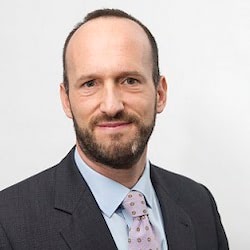
Orin Herskowitz, executive director of Columbia Technology Ventures and senior vice-president of applied innovation and industry partnerships at Columbia University, celebrates: “2022 was a big year for us, as we wrapped up a two-plus years-long effort to create a common ‘reasonable’ template for early-stage university life science startups funded by venture capital. It was a great cross-university and cross-VC initiative, which hopefully will get life-saving and life-improving therapeutics into the hands of patients faster, without many unnecessary months of negotiating friction.”
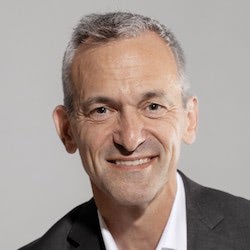
Keith Marmer, chief innovation and economic engagement officer at University of Utah, says: “In anticipation of these market dynamics, University of Utah began making investments such as these over the past two years. We’ve launched technology accelerators for therapeutic, energy, medical device, software and diagnostic assets while expanding the depth of engagement with entrepreneurs. We now have entrepreneurs working with researchers in many instances several years before a likely startup would be formed.”
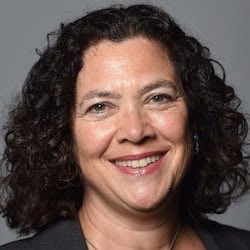
Karin Immergluck, associate vice-provost, Office of Technology Licensing (OTL), at Stanford University, declares: “Our most exciting event of 2022 was the launch of Stanford’s new School of Sustainability. The new school opened with much fanfare, and was able to hit the ground running, thanks to the generous $1.1bn gift from John Doerr, plus additional gifts that brought the total to $1.6bn. The School of Sustainability is focused not only on cutting edge scientific and technological discovery, but also new policy development. Both technology and policy solutions are being advanced by the new Sustainability Accelerator. It funded its first cohort of 30 projects, with topics ranging from blue food, water rights, and wildfire management, to clean energy, carbon capture and plastics recycling. The OTL is embedded in the accelerator so that we can work synergistically by providing IP due diligence on the projects, as well as technology development mentoring and co-funding through our own High Impact Technology Program.
“The OTL remains embedded in the Innovative Medicines Accelerator (IMA) as well. In addition to conducting due diligence on some of the project proposals, our Strategic Alliances team has been busy negotiating unusual in-licensing deals with biological tool providers so that projects going through the IMA can benefit from using the same drug discovery tools that big pharma has access to, but with a deal structure that is affordable for academic use. To increase options for successful exits out of the IMA, we’ve also entered into new types of alliances with investment firms who select later stage translational projects to support and, if successful, spin them out as new companies.
“All of these various deals come with a variety of IP and other legal obligations. Combined with the fact that a single drug discovery project may require use of multiple tools and funding resources, a significant amount of our effort is now going into alliance management and IP tracking for each project.”
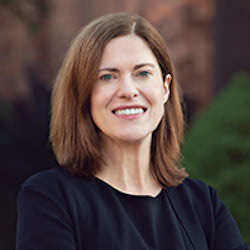
Kelly Sexton, associate vice-president for research and Innovation Partnerships at University of Michigan, notes: “At Innovation Partnerships, we now have three core units that allow us to provide a singular interface to support research commercialisation at University of Michigan: Corporate Research Alliances, Licensing, and Ventures. We often find that companies that are interested in exploring a sponsored research collaboration are also interested in learning about startup companies in their area of interest. By having a corporate alliances unit that can quickly connect companies with existing faculty research programs, IP portfolios and startups, we are able to lay the groundwork for a multi-faceted collaboration.”
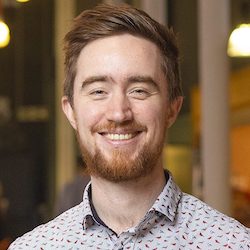
Marty Reid, interim executive director of the SETsquared Partnership, states: “From our IKEEP Programme, which helps students start their entrepreneurial journey and the Innovate UK funded ICURe, which helps early career researchers commercialise their research, through to our six business acceleration centres and Scale-Up Programme, we’ve developed an end-to-end portfolio of programmes so that entrepreneurial talent can find local support that’s right for them whilst also enabling potential investors and funding bodies curated insight and access to an incredibly rich pipeline of opportunities.”
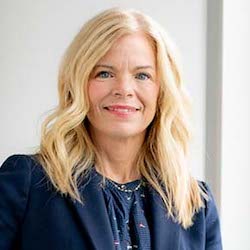
Kimberly Gramm became the inaugural chief innovation and entrepreneur officer at Tulane University in July 2022 to launch the Tulane University Innovation Institute. She says: “The Tulane University Innovation Institute is in its inaugural year, a university-wide presidential initiative designed to convert university research and ideas into marketable products, services, and startup ventures. The Institute is made up of three basic pillars and includes commercialise university IP, support faculty and student entrepreneurship education and programming, and help the New Orleans’ community of innovators realise their entrepreneurship goals.
“The Institute is in the heart of Tulane’s massive downtown campus expansion and revitalization effort, the cornerstone of which is the renovation of the historic Charity Hospital into research, education, and innovation space. In its first year, the Institute has launched several key programmes.
“The Institute has also launched a monthly seminar series engaging alums as innovation and entrepreneurship experts to help educate the Tulane community.”
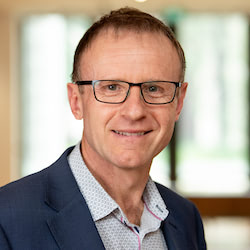
Alastair Hick, chief commercialisation officer at Monash University, observes: “The rise of founder-led spinouts, where researchers take a much more active role in the spin out process.” He says: “For Monash this is highlighted by Additive Assurance, focussed on quality assurance in additive manufacturing, which received a seed round led by IP Group. Additive Assurance have had significant support from Monash via proof-of-concept funds, mentoring, accelerator programs and access to IP Group investment funding, much of which was not in place five years ago.
“Ecosystem support is becoming a crucial piece of the spin out landscape, from developing new space for the Generator, which acts an entrepreneurship hub, through to a Makerspace and plans to further develop incubator space on and adjacent to campus for spinout companies as they develop.
“Support for founders [is available] through a variety of new programmes aimed to help them establish new companies, run through the Generator, but with the traditional support provided by a technology transfer office.”
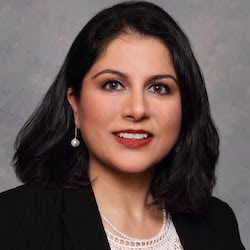
Kalpa Vithalani, executive director of technology transfer at Marquette University, notes: “The first-ever M-Prize (Marquette Prize) Challenge provided an exceptional cocurricular opportunity for our students to develop skills sought by employers, to apply their passion for inclusive product development, and to join a community of innovators — peers and mentors — driven to be the difference. Our mission-aligned relationship with Kohler Co. is a prime example of meaningful corporate engagement.
“This summer our Opus College of Engineering received more than $1m from Omron Automation to establish the Omron Advanced Automation Lab, an interdisciplinary learning laboratory which will bring together engineering and business students by combining innovative industrial automation and robotics technology with supply chain platforms. This lab will educate both engineering and business students on fundamental and higher levels of how to implement industry 4.0 into the design, manufacturing, and delivery of products.
“The Faculty Externship Program is a competitive two to four-week immersive summer experience that provides a pathway for new interactive engagement between Marquette’s faculty and corporate and community partners. Our office collaborates with external partners to identify opportunities, develop projects, and establish mutually beneficial outcomes. Faculty have participated in externships with Froedtert Healthcare, Kohler, Manpower and GE Healthcare that leveraged expertise in supply chain optimisation, digital solutions, organisational management, leadership development and talent pipeline strategies.”

Tony Armstrong, president and CEO of IU Ventures, says: “Our IU Angel Network continues to grow. We’ve begun an effort to work more closely with IU Athletics on a sports initiative to help discover technologies useful to our athletes. Our first cohort of IU Venture Fellows completed their programme, and we’ve welcomed a new cohort who will work with us on projects over the next year. Lots of exciting opportunities to engage our proud IU alums all over the world.”
Read the rest of this series:

Thierry Heles
Thierry Heles is editor-at-large of Global University Venturing and Global Corporate Venturing, and host of the Beyond the Breakthrough podcast.








